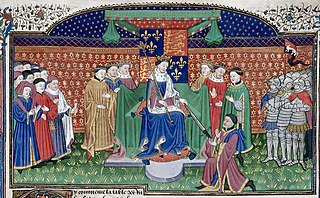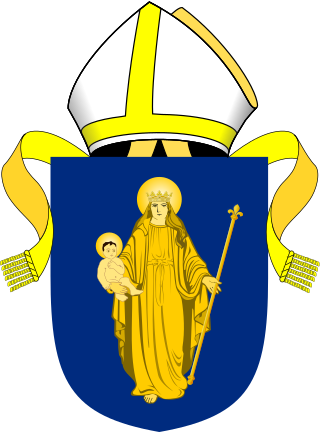
Thomas Bourchier was a medieval English cardinal, Archbishop of Canterbury, and Lord Chancellor of England.
William Courtenay was Archbishop of Canterbury (1381–1396), having previously been Bishop of Hereford and Bishop of London.
Thomas Langton was chaplain to King Edward IV, before becoming successively Bishop of St David's, Bishop of Salisbury, Bishop of Winchester, and Archbishop-elect of Canterbury.

Thomas Rotherham, also known as Thomas (Scot) de Rotherham, was an English cleric and statesman. He served as bishop of several dioceses, most notably as Archbishop of York and, on two occasions as Lord Chancellor. He is considered a venerable figure in Rotherham, South Yorkshire, his town of birth.
Robert Stillington was an English cleric and administrator who was Bishop of Bath and Wells from 1465 and twice served as Lord Chancellor under King Edward IV. In 1483 he was instrumental in the accession of King Richard III, leading to later reprisals against him under King Henry VII.

John Stafford was a medieval English prelate and statesman who served as Lord Chancellor (1432–1450) and as Archbishop of Canterbury (1443–1452).

Richard Poore or Poor was a medieval English bishop best known for his role in the establishment of Salisbury Cathedral and the City of Salisbury, moved from the nearby fortress of Old Sarum. He served as Bishop of Chichester, Bishop of Salisbury and Bishop of Durham.
William Alnwick was an English Catholic clergyman. He was Bishop of Norwich (1426–1436) and Bishop of Lincoln (1436–1449).
Thomas Brunce was a 15th-century Bishop of Rochester and then Bishop of Norwich.

The Bishop of Salisbury is the ordinary of the Church of England's Diocese of Salisbury in the Province of Canterbury. The diocese covers much of the counties of Wiltshire and Dorset. The see is in the City of Salisbury where the bishop's seat is in the Cathedral Church of the Blessed Virgin Mary. The current bishop is Stephen Lake.
Robert Neville was an English prelate who served as Bishop of Salisbury and Bishop of Durham. He was also a provost of Beverley. He was born at Raby Castle. His father was Ralph Neville and his mother was Joan Beaufort, daughter of John of Gaunt. He was thus a highly placed member of the English aristocracy.
John Russell was an English Bishop of Rochester and bishop of Lincoln and Lord Chancellor.
Ralph Ergham was the English bishop of Salisbury from 1375 to 1388, and then bishop of Bath and Wells from 1388 to 1400.
Edmund Audley was Bishop of Rochester, Bishop of Hereford and Bishop of Salisbury.
Nicholas Bubwith (1355-1424) was a Bishop of London, Bishop of Salisbury and Bishop of Bath and Wells as well as Lord Privy Seal and Lord High Treasurer of England.
Robert of Chichester was a medieval Bishop of Exeter.

Simon of Ghent was a medieval Bishop of Salisbury in England.

Roger Martival was a medieval Bishop of Salisbury in England.
John Arundel was a medieval Bishop of Coventry and Lichfield and Bishop of Exeter.
Events from the 1480s in England. This decade marks the beginning of the Tudor period.








